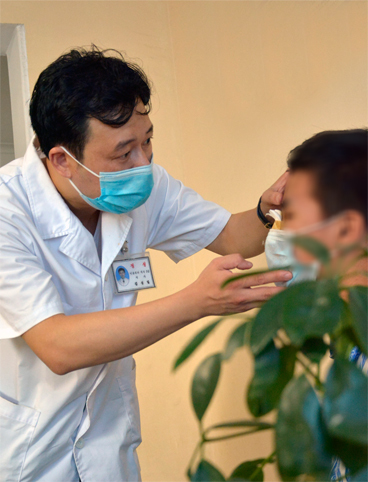News
Medical Theory on Four Kinds of Physical Constitutions.

Among the national intangible cultural heritages is the medical theory on four kinds of physical constitutions, which was authored by Ri Je Ma, a scholar of medicine, in the late 19th century.
The theory divides persons into four categories according to their physical constitutions and gives out prescriptions according to them.
Ri Je Ma made a comprehensive observation of patients in such aspects as strong and weak points of physical constitutions and the five viscera and six entrails, appearance, character, taste, reaction to medicines and clinical features and, based on it, classified them into thaeyangin, soyangin, thaeumin and soumin (large Yang, small Yang, large Um and small Um).
He asserted that different prescriptions should be applied to patients as the same pathogenesis produced different symptoms on them.
He prescribed different medicines according to patients’ physical constitutions as they reacted differently to the same medicine, thus enhancing the efficacy of medicines.
Different opinions on physical constitutions have been raised up to now, but few of them have been applied into clinical practice.
The four physical constitutions theory has been applied into practice from its beginning and is still proving effective in medical treatment.

